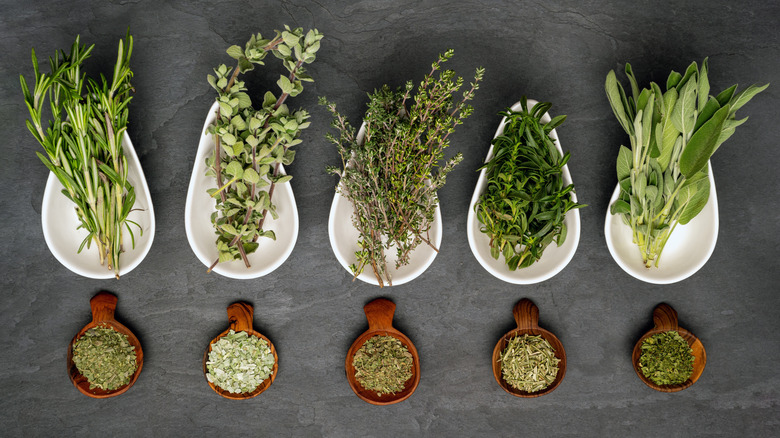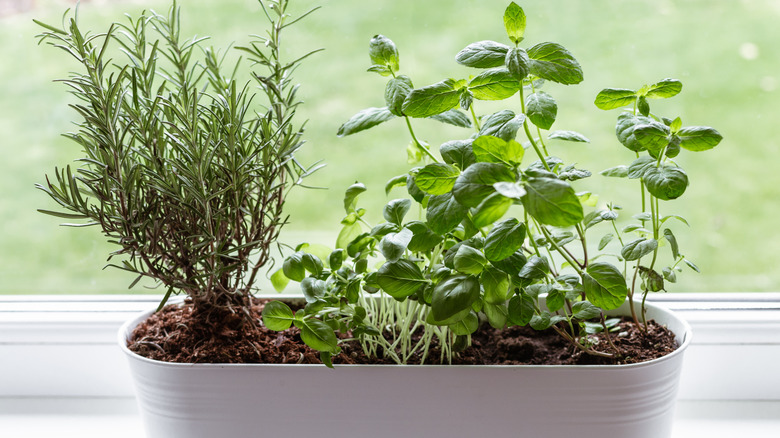The Critical Herb Mistake That's Costing You Flavor
Fresh and dried herbs are very different things. Okay, so technically they're the same, but their different states mean that they need distinct treatments when cooking. For one thing, if you're substituting dried herbs for fresh ones, you'll typically use a lot less since the flavor is more concentrated. For another, you'll also be adding the two herbs at different points in a recipe. While dried herbs should be incorporated fairly early in the cooking process so their flavor has time to develop, Cassie Johnston, cookbook author and recipe developer at Wholefully, cautioned that certain fresh ones need to go in at the end.
"Some more delicate herbs tend to have their flavor, color, and texture changed pretty dramatically when heat is applied," she informed us, listing basil, mint, and parsley among them. She added, though, "Some sturdier herbs like rosemary or thyme can handle some heat without it impacting their flavor." If you're not sure whether your herb of choice can take the heat, she advised, "When in doubt, add it after a dish has come off the heat or just before serving. That's when you're going to see the biggest impact in flavor and color."
How to keep herbs fresh
Another herb mistake that will definitely impact the flavor — and not in a good way — is storing them improperly. At best, your fresh herbs will dry out, in which case they can be used in the same way you'd employ their dried counterparts. At worst, though, they might turn brown or even start to mold. Cassie Johnston pointed out, "The best way to 'store' herbs is in the plant itself," by which she means that you should snip sprigs off of a live plant. "Growing your own herbs is going to save you so much money and give you the best flavor, and anyone with a sunny windowsill can do it," she enthused.
If you belong to the Brown Thumb Brigade, though, growing your own might not be an option. In that case, the best way to keep herbs fresh involves keeping them in a cup of water at room temperature, preferably loosely covered with a plastic bag. Basil, in particular, should never be refrigerated. In warm climates, stashing the cup of water in the fridge may be a better option for other delicate herbs. Hardier, woody-stemmed herbs like the aforementioned rosemary and thyme, along with marjoram and oregano, can be wrapped in a damp paper towel and stored in a resealable bag.
As for dried herbs, they will lose flavor and diminish in quality over time. If a container has been lingering in your spice cabinet for more than a year or two, it's time to toss it and buy a fresh product.

